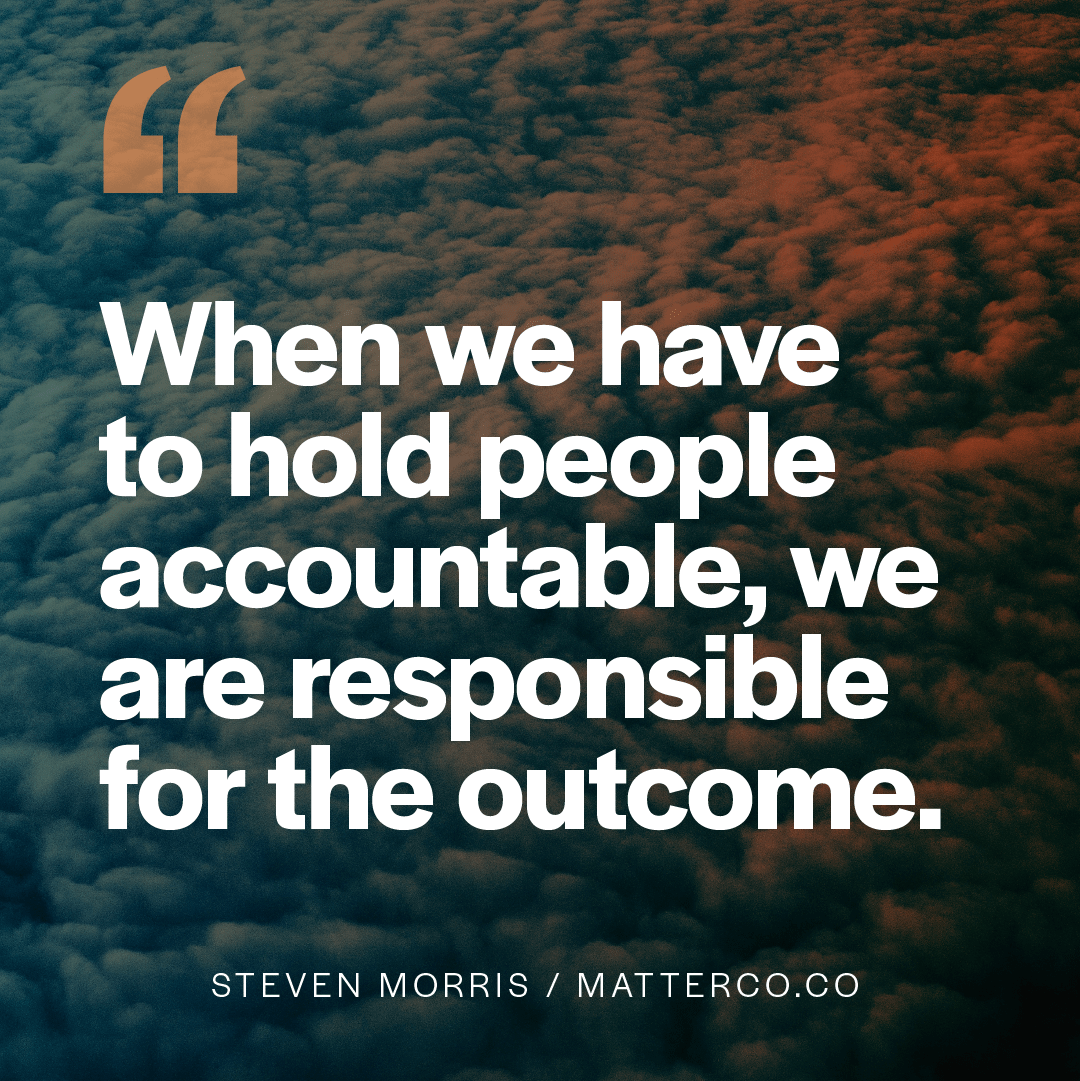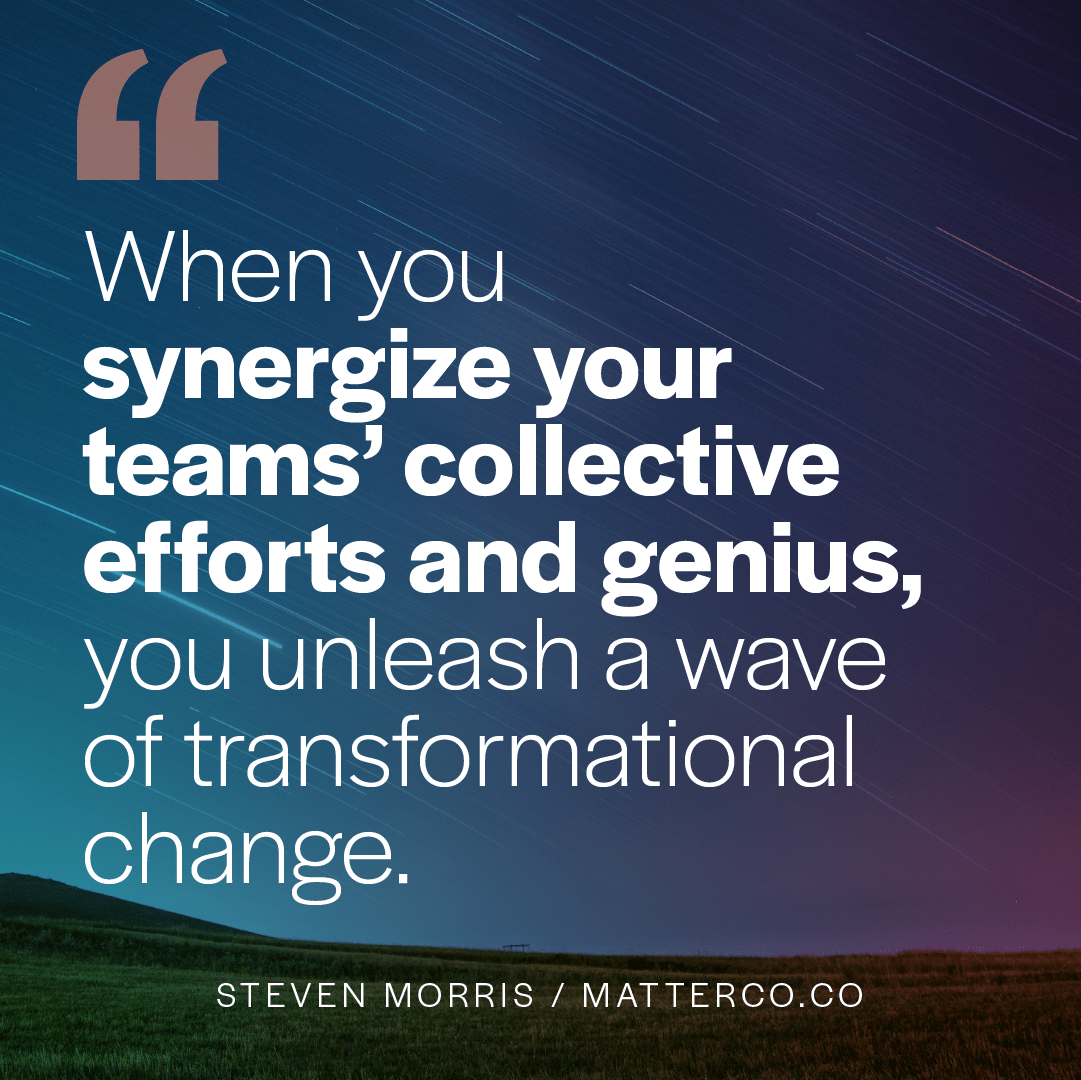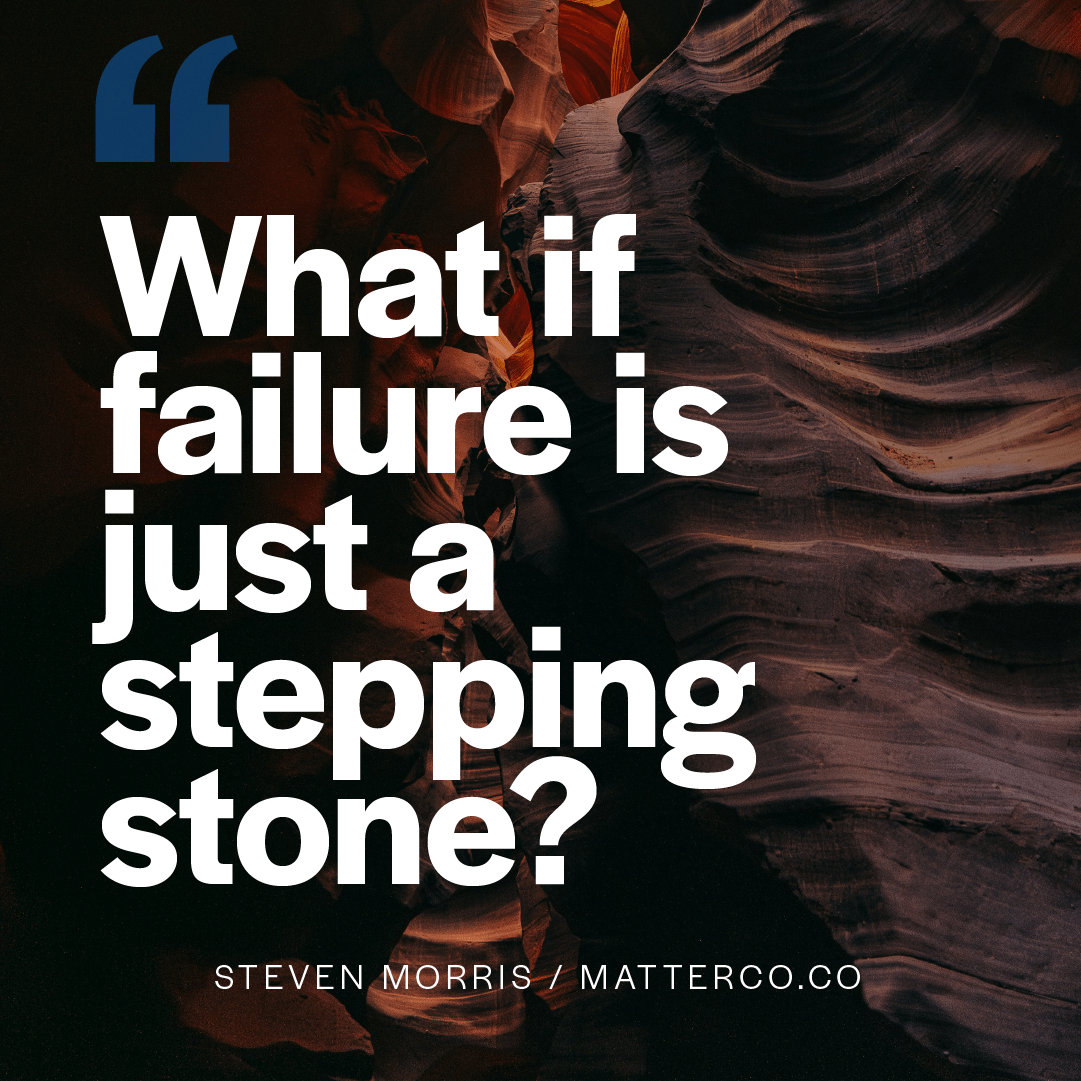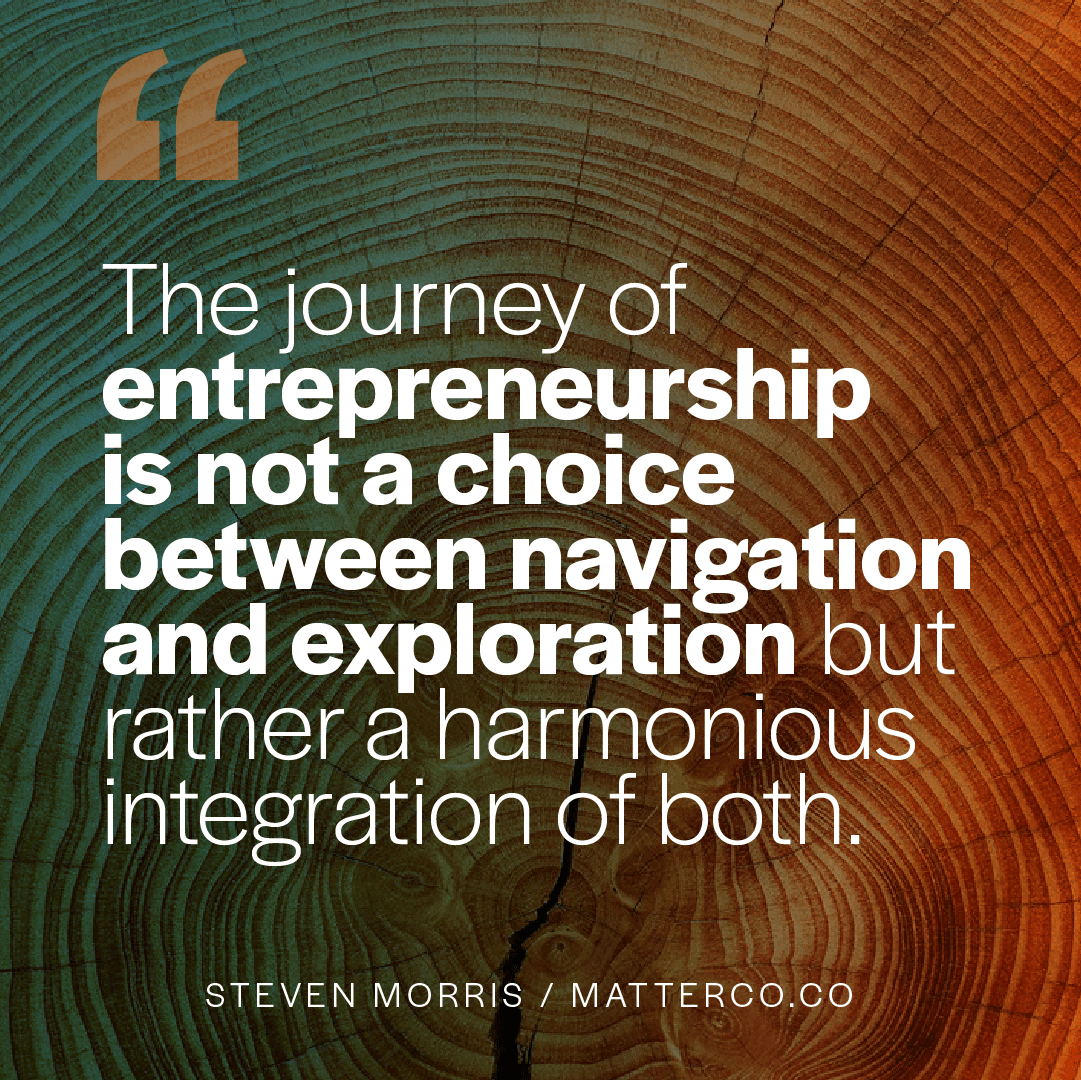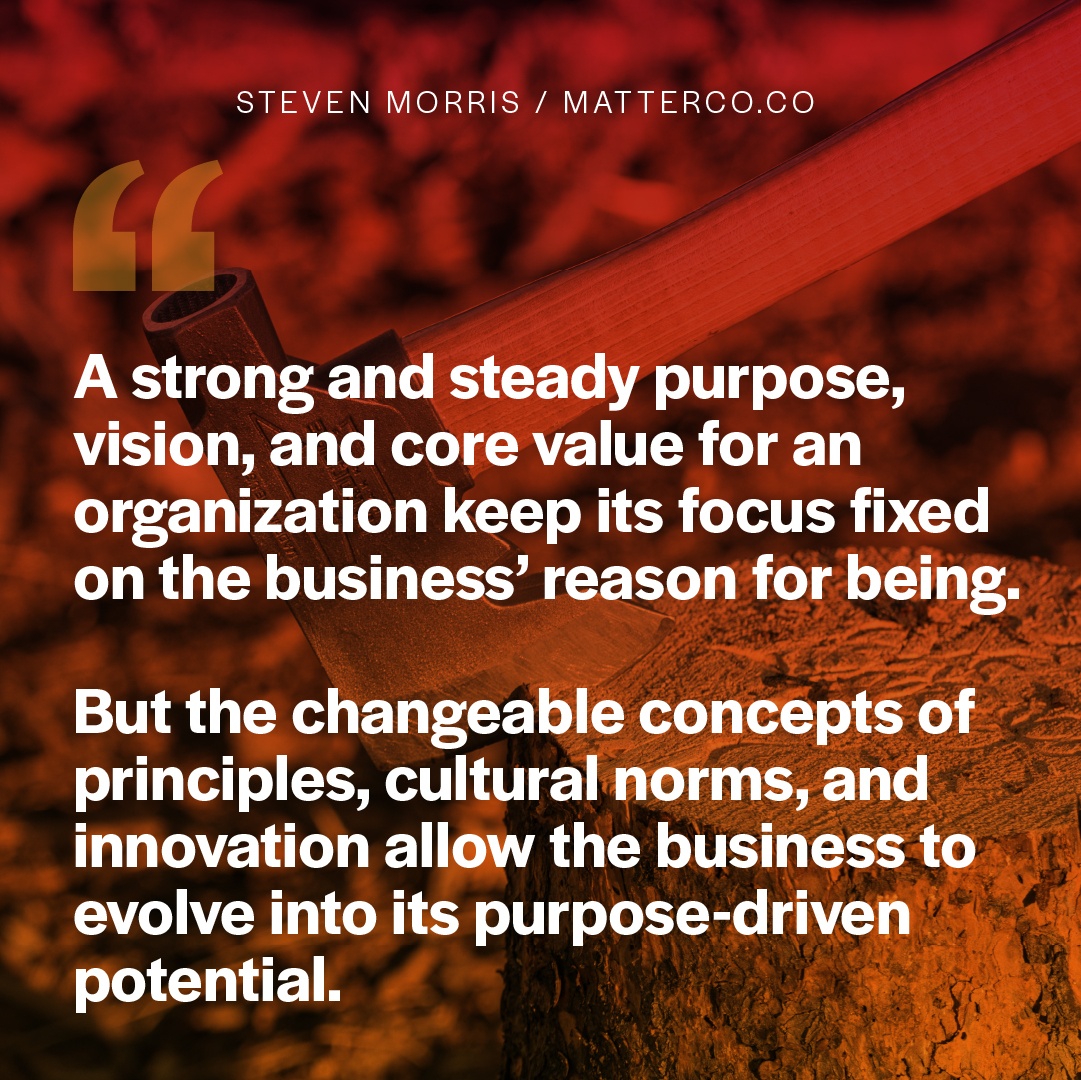
Permanence & Progress
One of the most challenging questions business leaders wrestle with is: what should and should never change? And why?
Answering this boils down to distinguishing the timeless anchors that hold the business vessel steady and seaworthy, and the changeable attributes that encourage the vessel to change direction, adapt to needs and evolve toward innovation.
Timeless attributes including your purpose, vision, and core values should never change. Conversely, cultural norms, operating principles, and innovative action should never stop changing.
Here’s an example from a non-profit organization that serves a global membership.
Their timeless purpose is to serve and support the members of the non-profit. They have a focused vision of what that purpose will look like as it’s fulfilled. They strive toward their vision and purpose through their timeless lived core values. But how they go about serving their members will evolve as times change and the needs of members progress. Thus, their innovation, operating principles, and cultural norms evolve accordingly.
What’s timeless:
- Purpose = We are stewards for the well-being of our membership.
- Vision = We serve our membership to a brighter future for their business.
- Core value = We nurture our membership: Ensure that our members feel we care.
What’s changeable:
- Principles = Our meetings have a membership focus, but the principles in action evolve to meet the current needs.
- Cultural norms = We put membership concerns at the front of the line, but their concerns change so our cultural norms including communication methods, how global offices run meetings, and how we work together as a cohesive unit must change, too.
- Innovation = Our current innovation includes, membership outreach support during COVID, how we host virtual annual meetings, how we adapt to the changing needs of membership.
The confusion between timeless and progressive concepts shows up in every business. Knowing when it’s time to evolve the temporal concepts is tricky.
The United States, for instance, has at least two key foundational documents that define why we exist and what we stand for: The Declaration of Independence, and the Gettysburg Address. (Side note: Even the Constitution is amendable).
But neither of these documents speak to what we should do about infrastructure needs, voter rights laws, Medicare, or minimum wage. This is where leaders must decide what’s most important today to live up to our vision of tomorrow.
A strong and steady purpose, vision, and core value for an organization keep its focus fixed on the business’ reason for being. But the changeable concepts of principles, cultural norms, and innovation allow the business to evolve into its purpose-driven potential.
If you want a more trusting team, a culture of belonging or a magnetic brand that attracts more of the right customers, I can help. If you'd like to explore if working together makes sense, drop me a line.




